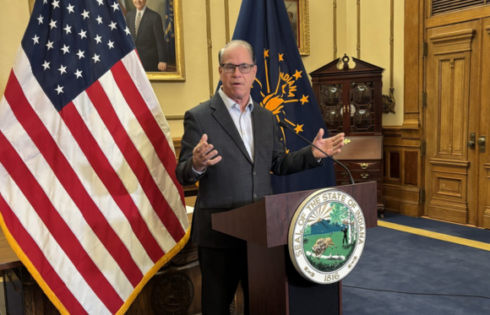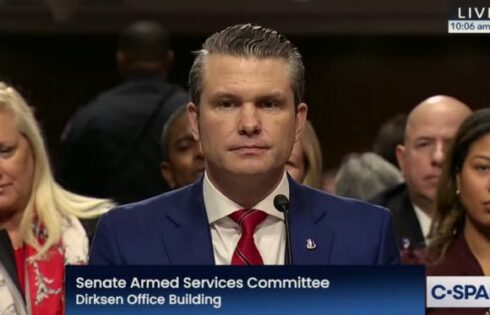
Our 2017 year-end fundraising campaign runs through Dec. 31, so please consider a tax-deductible donation of any amount to help us continue to publish the best campus news in the nation. Thanks for your support!
As reported yesterday by The College Fix, United Kingdom Minister of Universities and Science Jo Johnson has given warning to his country’s colleges that they’d better clamp down on students who try restrict free speech on campuses.
Johnson said he “has seen too many ‘worrying’ incidents of groups trying to ‘stifle those who do not agree with them,’” and alerted universities that they “have a duty to intervene and ensure differing points of view can be heard – however controversial.”
Beginning in April of next year, the new Office for Students will have the power to penalize colleges that don’t “adequately safeguard free speech.”
If an institution is so punished, it could be fined or even “deregistered,” meaning it won’t be “recognised as an English higher education provider,” won’t get government funding, and won’t be permitted to award degrees.
The Guardian reports student groups are peeved at Johnson’s assertions, noting they’ve denied speaking opportunities only for a few “extremist groups” such as the British National party, the English Defence League, and the Muslim Public Affairs Committee UK.
“These are the only organisations no-platformed by [the National Union of Students],” said the NUS’s Izzy Lenga. “No individual person. These dangerous groups seek (and have done before) to threaten, demonise and attack the lives of students on campus. They have absolutely no place in our colleges and universities.”
[Lenga added] “We are not censoring free speech; we are protecting groups of students on campus who have as much of a right to be there as any other student from groups that wish to harm us physically and mentally because of our identity,” …
“Freedom of speech on campus is a fundamental democratic right but there continues to be a role for clear and precise no platform policies to be used in the fight against violent racism, fascism and other forms of discrimination,” [said Union of Jewish Students campaigns manager Liron Velleman].
The NUS position was supported by Labour. Angela Rayner, the shadow education secretary said it was a “false choice to suggest that universities are either places of free enquiry or places of safety”.
“They can be both. Denying access to groups and individuals who incite violence and hatred is a perfectly sensible step to keep students safe from harm,” she said.
“The National Union of Students have a ‘no-platform’ policy for a handful of racist, antisemitic and extremist organisations, some of which the government itself has also banned. If Jo Johnson is opposed to that policy, he needs to be clear which of those groups he actually wants on campus. Otherwise this so-called announcement is just another meaningless gimmick from a government that has run out of ideas.”
Liberal Democrat Layla Moran said that a “delicate balance” had to be struck between free speech and “allowing students to feel safe.”
If Moran were a Yank, her First Amendment-knowledgable constituents would guffaw at her. But this being the UK, her comment, sadly, actually has merit.
After all, part 3 of the country’s Public Order Act 1986 states
A person who uses threatening, abusive or insulting words or behaviour, or displays any written material which is threatening, abusive or insulting, is guilty of an offence if—
(a) they intends thereby to stir up racial hatred, or (b) having regard to all the circumstances racial hatred is likely to be stirred up thereby.
Several additions to the Act have been added since: The Racial and Religious Hatred Act 2006 (“stirring up hatred against persons on racial or religious grounds”), and the Criminal Justice and Immigration Act 2008 (added sexual orientation to the “protected” list).
Minister Johnson notes these laws are “clearly set out” and that students “who felt uncomfortable with views that did not come within that definition had to become ‘resilient and learn to deal with controversial opinions.’”
MORE: U.K. office will ‘fine, suspend or deregister’ if free speech not protected
MORE: Campus free speech problems and hysterical progressive politics
IMAGE: Shutterstock.com
Like The College Fix on Facebook / Follow us on Twitter





Please join the conversation about our stories on Facebook, Twitter, Instagram, Reddit, MeWe, Rumble, Gab, Minds and Gettr.